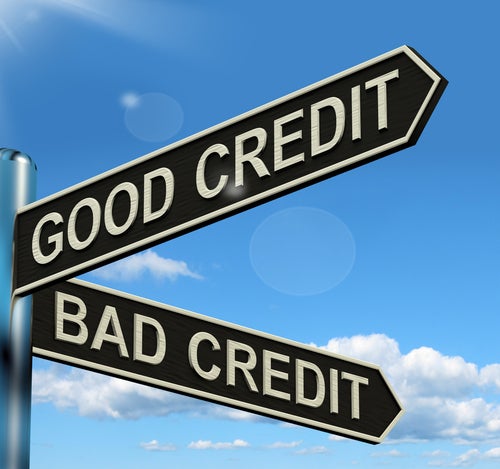
“What’s your credit score?” is a loaded question, especially since it isn’t defined by a singular number. In reality, every consumer has one score attached to each of The Big Three credit bureaus—Experian, TransUnion and Equifax. When applying for a loan, many lenders take the average of these numbers to determine a customer’s creditworthiness. Consider Steve’s credit scores:
Experian: 729
TransUnion: 748
Equifax: 752
Average: 748
A discrepancy in scoring can lead to a poor average and fewer options in the world of lending. Although Steve’s credit scores are similar, a significant drop in one could prevent him from securing a new loan at a fair rate. The first step in preventing this problem is awareness. Read on to learn why your credit scores may vary and what you can do to remedy the issue.
Reasons You Have Different Credit Scores
- Conflicting information. The credit bureaus can only work with the information they have. A missing account—especially a positive one—could have a negative effect on your credit score. While the bureaus should have the same information in their files, a creditor’s failure to report information to all three can lead to a difference in scoring. Take some initiative to identify missing information. Make a list of your current accounts and review each credit report to ensure that they are listed. Don’t allow lax reporting to prevent you from earning the credit score you deserve.
- Different scoring models. As individual companies, the credit bureaus are each equipped with their own sets of standards and credit scoring models: the mathematical equations that determine your three-digit financial grade. Although each bureau uses the same information to determine your credit score, their model may weigh information differently. Make an effort to learn more about each bureau and its scoring policies. Continue your efforts by keeping your accounts positive and accurate. Good scoring is a product of good information.
- Mistakes. Whether it’s a mistyped home address or an incorrect Social Security Number, credit report mistakes can range from benign to catastrophic. Unfair damage is sometimes the result of simple human error. Your creditor may have reported the wrong information or failed to update the credit bureaus of a change in status, i.e., paying your bill on time. Regardless of the mistake, it should be corrected as soon as possible. Review your reports carefully, highlighting any incorrect or questionable information. If left unchecked, a small mistake could lead to larger consequences.
- Varying times of assessment. Timing is everything, especially where credit is concerned. The Big Three operate under their own schedules. While a new account or paid loan may be assessed on the 15th of the month by TransUnion, Experian may process their information on the 30th. If you need your credit in top form, contact the bureaus and make sure your info is up-to-date. A good score requires attention. Don’t allow complacency to keep you from your goals.






